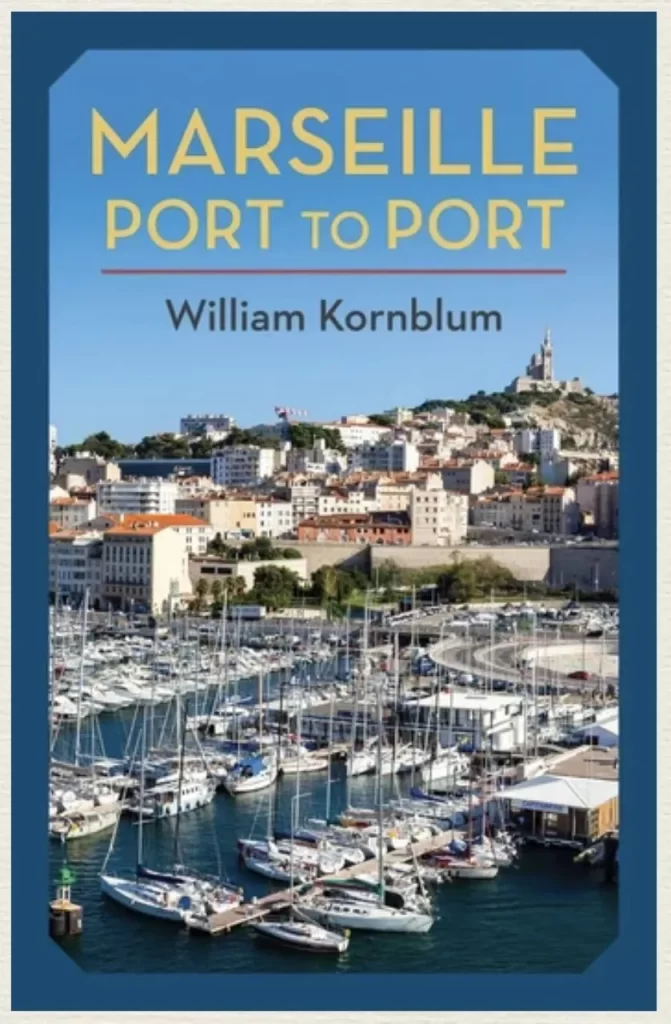Loulabelle's FrancoFiles episode 73
Guest: William Kornblum
Other Loulabelles links:
Loulabelles FrancoFiles Instagram
Loulabelles FrancoFiles Spotify Playlist
Loulabelles FrancoFiles Facebook
I found my chat with William Kornblum to be fascinating. Bill as he prefers to be called is
Professor Emeritus of Sociology at the Graduate Centre at the City University of New York. He is also an author of many books but the one with a particular focus for us as Francophilesis Marseille Port to Port.
One review said Bill’s writing showed he is “deeply committed to understanding the city’s layered history and contradictory energies. Every page, every photo resonates with his sense of wonder and his affection for ‘a city that has seen more than its share of misery and brave struggle.’ ” Now… you don’t get a connection like that with a place without visiting or living there so in my podcast chat with Bill we unpacked this further!
Bill first visited France in the 1960s which was a wonderfully vibrant time and he fell in love with the culture immediately. He continued to visit and live in Paris and France at times over the decades. He has visited most French cities and is fluent now in the language.
In my papotage with Bill I was enlightened by his description of Marseille. It is a city of contradictions with differing socio-economic areas, but also great connection and loyalty to their city. It has a reputation for crime but when viewing that statistic through the context of a New Yorker, Bill says there is much more to be celebrated than worried about.
Bill has some terrific experiences and stories to share which can be found in his book. He talks about Marseille as a living breathing place, like a friend almost. The love he has for the city and France in general is clearly felt when chatting to him.
I often feel like old buildings almost talk to me about the past. I asked Bill what the buildings of Marseille say to him. His response has led me to a whole different way of considering the way history is shown through buildings. Bill talked about the buildings around the port which are newer, but can only be seen as so, on very close inspection. They were rebuilt in the 1950s after being decimated by German bombing in WW2. The new buildings now tell the story, just through their newer appearance, of the tragedy of what occurred during the war.
I love the way Bill explained how Marseille is created on a natural harbour, how the population has built up to fit in and adapt with nature, rather than make the natural environment bend and change to fit with what we human inhabitants want. Marseille is protected inland by the mountains and looks to the sea for its culture and its food. The city seems even more special to me now knowing this.
I love Bill’s description of his fave French day. The idea of “walking with no where necessarily to go” is beautiful to me. Just meandering and drinking in a French city. Bill talks of wandering around the port looking at the boats, having a local French lunch in Marseille of cous cous and spend the afternoon with a couple of French movies. Being immersed in the French language. Bliss.
Recette
So, there’s not just one dish discussed in this episode! Bill spoke about the traditional dish of Marseille, bouillabaisse as well as his favourite French food, foie de veau. I must admit that liver is not something I would ordinarily choose but after hearing Bill’s admiration of it and reading the recipes on line I’m going to give it a go!
Musique
Jean Ferrat – On ne voit pas le temps passer
This song is the theme music from “La Vieille Dame Indigne”, a post war 1966 Marseille film directed by René Allio.
William Kornblum’s links
France Today on William Kornblum
Press re: William Kornblum’s book – Marseille, Port to Port
Marseille, France’s sunny second city, is a beguiling place. A major Mediterranean port, it beckons to urban wanderers and anyone enthralled by cities in all their multiplicity. Marseille’s ancient streets tell stories of fires, plagues, wars, decay, and regrowth. Waves of people of diverse ethnic and religious backgrounds have made their way there, and many have found homes for themselves. Although the city hosts visitors from around the world, France’s social and political fault lines are on full display. For all its charm, Marseille struggles to overcome its reputation for corruption and crime.
William Kornblum—an eminent urban sociologist and a veteran traveler in the Francophone world—invites readers on an exploration of a changing city. Blending travelogue and social observation, he roams Marseille’s neighborhoods and regions in the company of writers, scholars, activists, and ordinary people. The living history of the city comes through in Kornblum’s character sketches and the stories that his guides tell. Relishing Marseille’s coasts and crags and reveling in its rich maritime culture, they discuss the political, social, and environmental challenges the city faces. Kornblum also draws connections with his hometown, New York City, which like Marseille is a deindustrialized port city increasingly dependent on the production and consumption of culture.
Offering a captivating and thoughtful portrait of the city and its citizens, this book is for all readers who have ever wondered what makes Marseille so distinctive.



